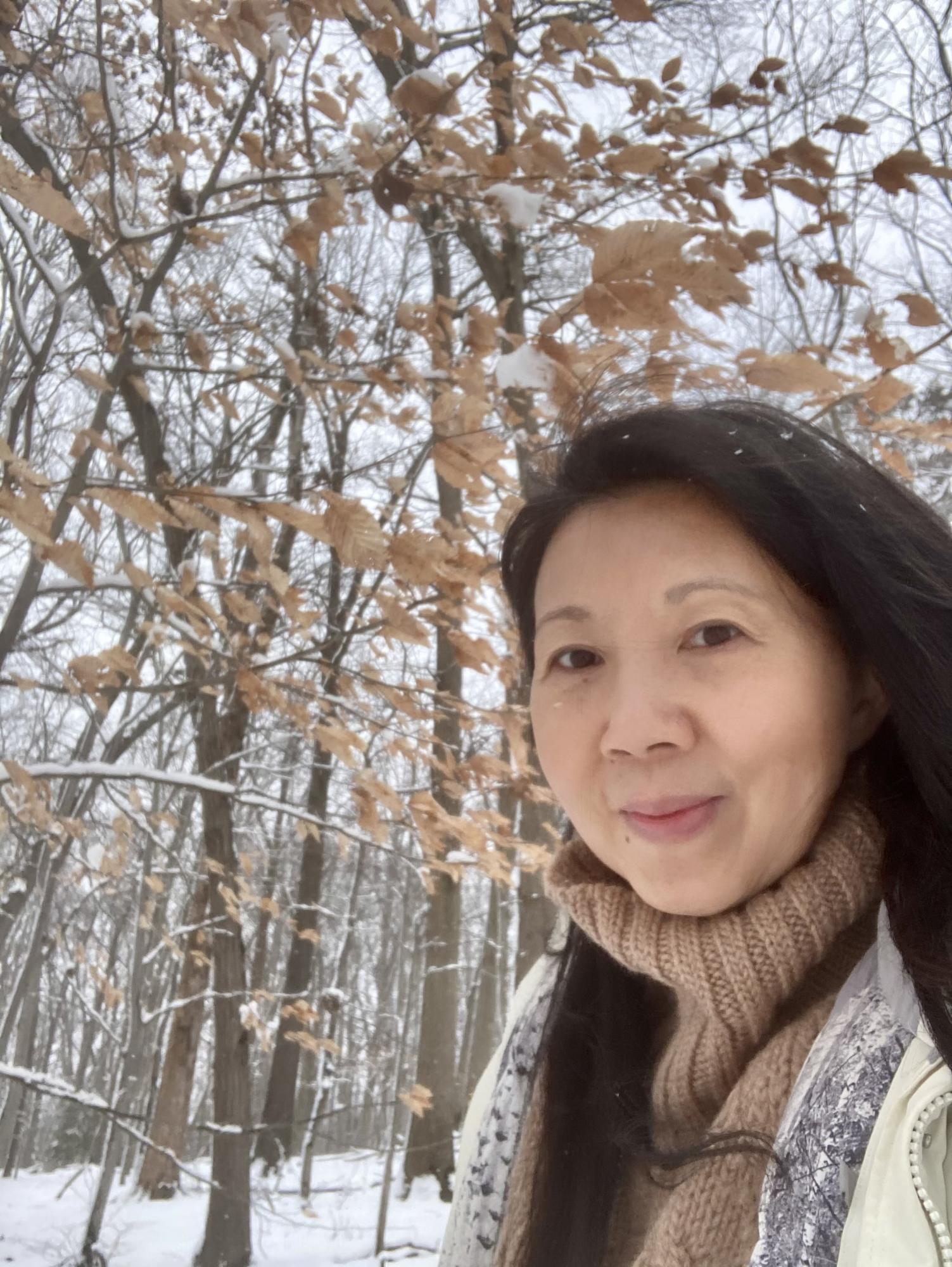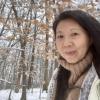Meet Teaching Artist Pacyinz Lyfoung


Pacyinz Lyfoung is a French-born, Hmong American woman poet. She currently resides in Washington, DC; however, she is Minnesota-grown, especially in her poetry. Her ears were opened to the possibility of becoming an Asian American poet after attending a reading by Bao Phi, then an emerging poet still in college. Her first poetic steps were taken as a Loft’s Asian Pacific Islander Inroad Fellow learning from Sherry Quan Lee. Since then, in between other life commitments, she has steadily developed as a non-MFA poet, taking BIPOC community poetry classes with Voices of Our Nations (VONA)’s incomparable teachers such as Elmaz Ebinader, Ruth Forman and David, Winter Tangerine, Split this Rock and Sally Wen Mao at the Jenny McKean Moore Workshop. She has published in several journals and anthologies and is still working on her first poetry manuscript. She has led Wednesday community workshops for Split this Rock, curated a breakout room for the BIPOC Writing Workshop (a grassroots virtual group that sprung up as a support and creative space during the pandemic lockdown and has met with no fail every week), and recently won the DC Poet Project’s Nature Open Mic, officially establishing her as a dual citizenship Minnesotan and Washingtonian poet.
The video below references a class Pacyinz taught summer 2021. To see her current class list, visit her artist bio page.
***
When did you start teaching? What path—career or otherwise—brought you here?
I came to facilitating poetry workshops out of the frustration of not finding AAPI workshops and writing circles in the DC area where I currently reside. I would be waiting for maybe one AAPI workshop being offered annually. Then I decided, if it does not exist, why not create it? So, I started to propose facilitating AAPI-focused poetry workshops. Furthermore, because I did not get an MFA, I felt compelled to attend as many poetry workshops as I could and specifically sought out BIPOC if not AAPI workshops. I went to hundreds of paid and unpaid workshops. I realized I think I have gone to enough workshops that I know how they're done and I should develop some. Professionally, I was also designing trainings that were tailored for specific audiences, so it was a natural transition to move to designing poetry workshops. In life as in art, I am constantly evolving, so I have learned a lot and I am happy to help others on their learning journey as well.
How would you describe your teaching style?
My teaching style reflects that fact that I was a diaspora child, so I am a cultural mutt. Combined that to the versatility of Gemini, professionally, I have been multisectoral and intersectional. Sometimes, my teaching will follow the classics, sometimes it will experiment with multi-media. Creativity comes through many paths.
When it comes to imagining and creating classes, where do your ideas come from? What in particular inspires you?
A lot of times, my classes come from wanting to develop what has not been available to me as a poet. Then, I imagine what my ideal class would be. However, having professionally worked as a consultant and French tutor for kids (I probably would have been a French professor if my parents had not pursued a second migration to the US from France, where my father was studying, and where they stayed when they became refugees after the Fall of Vientiane during the Vietnam War), I also design my classes with my target students in mind: what would be useful, what would be relevant, etc., including what would be fun.
What's the ideal environment for your classroom? What atmosphere are you hoping to establish?
Ideally, my classroom operates like an artists' collective, with people coming to the table as fellows on that same journey, for both collective and individual benefits. Most of the workshops I have attended, which meet more than once, create strong bonds and a sense of community that lasts beyond the class term. I hope to recreate that type of synergy and long-lasting impact.
Regardless of what your class is specifically focusing on, what's the main goal you have for your students?
My main goal for my students is to create a space where they can evolve as poets, refine their voices, learn new skills, make new connections, vision next steps and find a new poet community which will last longer than the specific workshop. However, because I came to poetry partially as an alternative set of skills for social justice advocacy, another goal for my students is for them to be able to use poetry as an effective social justice platform and build solidarity between each other who are hopefully from diverse backgrounds.
What are goals you have for yourself? These could be teaching goals, writing goals, career goals, community goals, etc.
My goals as a teacher are several. Of course, I am glad to get more experience as a poet by really thinking through poetry craft and poetry generation tools. However, as a poetry teacher, I would like to think that I am come from many poetry traditions and approaches passed on to me by other poets. Therefore, as a poet, I too pass on what others have taught and what I have learned that is more unique to me. I do think that one becomes better at what one does by teaching it to others. For poetry, it is especially good to get out of your own habits, self-indulgence, obsessions, narcissism, traumas and so on, and make space for being useful and thoughtful in your poetic communities.
My goals as a poet are several as well. I want to preserve my family's and community's Hmong heritage, culture, and history for future generations of our own children and community. I want to share those with broader audiences, especially because the Hmong people and more specifically the Hmong Americans who came as refugees from Laos are such a tiny community in the bigger world. I also very much identify as Asian American, which is a mix of our own ethnicities, the shared experiences with other AAPIs, and being American. There is a definite Asian American experience that also needs to be voiced, documented, and shared. Finally, being a minority within minorities, I also think a lot about solidarity: that my people, Hmong and Asian, will only survive and thrive, because we belong in the American tapestry. If I could do those three things, I think I would feel satisfied that my poetry is useful in my lifetime and beyond.
What have been some of your own favorite educational experiences?
As a teacher, I enjoy seeing people's excited faces, when they hear something that resonates or get down to write down whichever awesome words just crossed their minds. It is amazing to see words come out the nothingness into someone's poem. I also enjoy the discussions and connections that happen in poetry classes. When people take poetry classes, usually, they are at moments in life when they are ready for a change somewhere. There is growth from the class. That's the magic of poetry workshops.
To you personally, what is the most important part of the literary arts?
The most important part of the literary arts is its function as a fundamental maker, keeper, and transferor of community, culture and history. I do believe that poetry and other creative writings record the unwritten histories of people that are not official books and documents.
Is there anything else you'd like to share?
Literary people are word people. As a poet and as a poetry teacher, I love to see and hear beautiful words, life-changing, and world-changing words emerge and come alive, which is what we do as poets.
